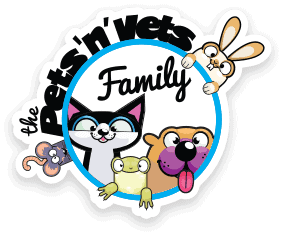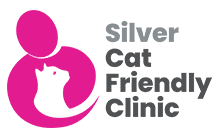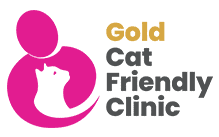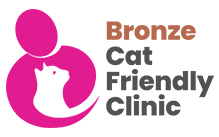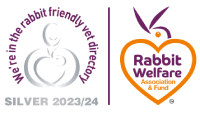It’s time to put the winter coat away (well… maybe keep it close by for a few weeks yet...) and start looking forward to the brighter evenings and better weather.
There are a few things to bear in mind whilst making the most of spending more time with your pets outdoors, however. We have put together this blog to highlight a few things to watch out for around the garden and at home this spring.
Bulbs and Plants
Many of you will be planting bulbs and flowers in the Spring. You may not know that there are many house and garden plants that are poisonous to cats and dogs.
Here is a list of the most common plants that are poisonous to cats and dogs:
- Daffodil bulbs
- Onions
- Garlic
- Foxgloves
- Hydrangea
- Ivy
- Lily of the valley
- Marigolds
- Rhododendron
- Azaleas
- Buttercups
- Rhubarb leaves
- Wisteria
- Tulip bulbs
This does not represent a complete list of all poisonous plants. The Dogs Trust have an extended list available on their website.
Please don’t panic if your pet chews or eats any poisonous plants, flowers or bulbs. Symptoms can range from mild GI upset to more serious conditions so give us a phone immediately and one of our vets can advise you what to do next.
Bee and Wasp Stings
Most bee or wasp stings are not emergencies. However, your pet may require veterinary care depending on where they are stung, the severity of the reaction and if they are allergic.
It is not the small puncture wound that causes the pain and irritation but the small amount of poison that is injected. If stung in the mouth or throat, your pet could require veterinary treatment. This is because the sting could result in swelling around the throat or neck which can lead to difficulty breathing.
What can I do if my pet is stung but does not appear to need veterinary care?
- Try and remove the sting by scraping it with a fingernail or hard piece or card (we recommend you avoid tweezers as they may squeeze more venom out of the sting)
- If stung by a bee, mix a small amount of baking soda with water and apply the solution to the affected area to help reduce pain
- If stung by a wasp, mix a solution of half vinegar, half water and apply it to the affected area to help reduce pain
- Keep an eye on any swelling. If swelling is present after several days, it may be best to call your vet
Anaphylactic Shock
Much like in humans, anaphylactic shock is a rare but severe reaction to a particular allergen. It is possible that your pet is allergic to insect stings. If so, they may show the signs below and will need to be seen by the vet as soon as possible.
Signs of anaphylactic shock:
- Shock
- Vomiting
- Difficulty breathing
- Trouble controlling bladder and bowels
Easter Goodies
Most of you will be aware that chocolate is poisonous to dogs and cats but did you know that Hot Cross Buns (another Easter favourite) are also poisonous to dogs? All grapes, raisins, currents and sultanas are toxic to dogs meaning that anything containing them can be a danger to your dog if ingested. It is best to keep any chocolate and food containing grapes, raisins, currents and sultanas out of reach.
Grape, raisin, current and sultana digestion may result in the following symptoms:
- Vomiting and/or diarrhoea within a few hours of ingestion
- Loss of appetite
- Lethargy
- Dehydration
- Abdominal pain
- Only passing small amounts of urine or no urine
- Oral ulcers
- Tremors
- Seizures
- Coma
Please contact us immediately if your pet is displaying any of these symptoms.
Slugs and Snails
Watch out for slugs and snails as they have the potential to carry lungworm. Lungworm is a potentially fatal disease but can be avoided by keeping your dog up to date with worming treatments.
Please contact us if you think your pet may need veterinary assistance.
